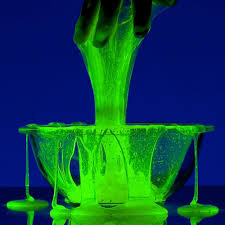记忆方法
1. 谐音“是泥么?”。
中文词源
slime 污泥,淤泥,泥浆,粘液
来自古英语 slim,污泥,淤泥,来自 Proto-Germanic*slimaz,滑的,黏滑的,来自 PIE*slei,滑 的,黏滑的,词源同 lime,slip.
英语词源
- slime
-
slime: [OE] Along with its relatives German schleim, Dutch slijm, and Danish slim, slime comes from a prehistoric Germanic slīm-. This probably has connections with English lime ‘calcium’ and Latin līmus ‘mud’.
- slime (n.)
- Old English slim "slime," from Proto-Germanic *slimaz (cognates: Old Norse slim, Old Frisian slym, Dutch slijm "slime, phlegm," German Schleim "slime"), probably related to Old English lim "birdlime; sticky substance," from PIE root *(s)lei- "slimy, sticky, slippery" (cognates: Sanskrit linati "sticks, stays, adheres to; slips into, disappears;" Russian slimak "snail;" Old Church Slavonic slina "spittle;" Old Irish sligim "to smear," leinam "I follow," literally "I stick to;" Welsh llyfn "smooth;" Greek leimax "snail," limne "marsh, pool, lake," alinein "to anoint, besmear;" Latin limus "slime, mud, mire," linere "to daub, besmear, rub out, erase"). As an insult to a person from mid-15c. Slime-mold is from 1880.
- slime (v.)
- "to cover with slime," 1620s, from slime (n.). Related: Slimed; sliming.
权威例句
- 1. There was an unappealing film of slime on top of the pond.
- 池塘表面有一层黏腻腻的污泥。
- 2. The pond was full of mud and green slime.
- 池子里满是淤泥和绿色的污水。
- 3. The snail left a trail of slime along the floor.
- 蜗牛在地板上留下一道黏液.
- 4. He got coated with slime from head to toe.
- 他弄得从头到脚都是泥.
- 5. Frogs produce slime to keep their skin moist.
- 青蛙分泌出黏液来使皮肤保持湿润.

